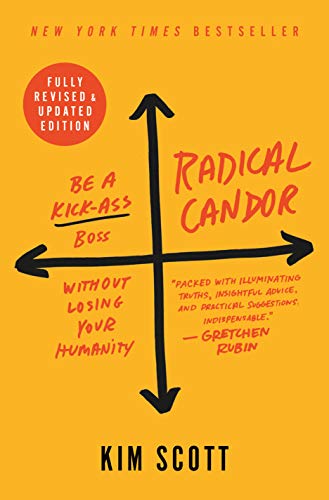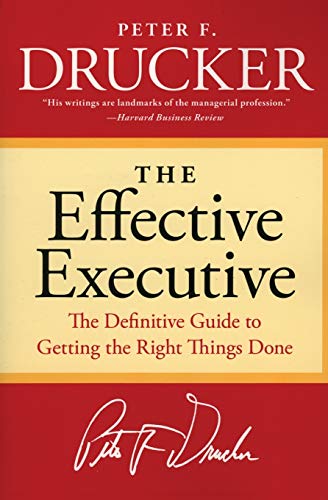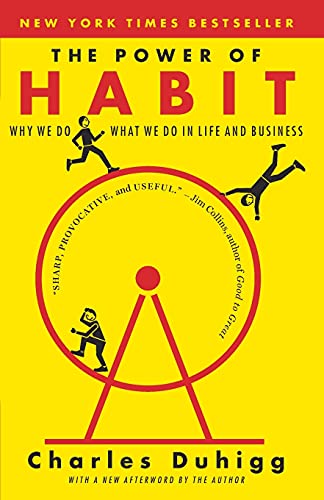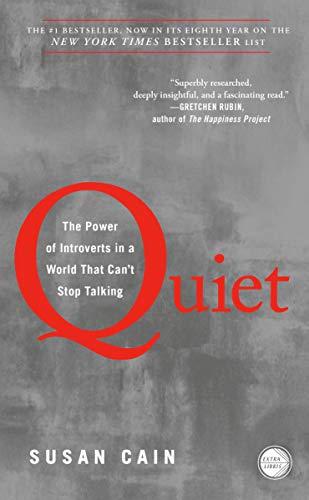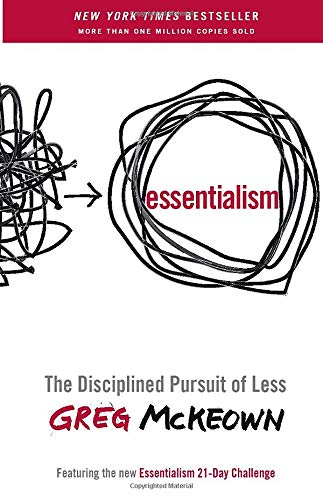Alysha’s
Bookshelf
These are some of my favorite books for women in the workplace and for developing leadership skills. They’re the ones I recommend to everyone.
I’m a big fan of transparency, so here’s the full disclosure: If you make a purchase after clicking the product links on this page, I’ll make a little money from Amazon. The best part? It doesn’t cost you a penny.
My list includes why I loved these books. I hope it helps you find the ones you can get the most out of!
Feminist Fight Club
Sometimes, you need someone to show you what’s right in front of your face. That’s how I felt when Jessica Bennett opened my eyes to the ways women are minimized in the workplace. From being the notetakers, the caretakers and the ones who are always talked over in meetings.
It’s not all doom and gloom. In fact, Bennett includes easy-to-implement strategies to lift up other female colleagues and to stick up for yourself.
The format gets a bit redundant toward the end, but it’s highly skimmable if you need to read for the gist and skip ahead.
Dare to Lead
This was the first Brené Brown book that I read, so it was my introduction to vulnerability at work and the idea of shedding our armor. It underscored the importance of empathy and the kind of authenticity that I need to feel safe in the workplace.
“Dare to Lead” gave me a really helpful tool for when I’m operating on assumptions. When engaging in a crucial conversation, you can lead with the vulnerable statement: “The story I’m telling myself is ...” It opens the door to open dialogue about what’s true, and it’s a jumping-off point for deciding how to be clearer in the future.
This may be an unpopular opinion, but Brené Brown could cut some pages from her books. Same as Feminist Fight Club, feel free to skim when you feel like you’ve got the concept covered. The repetition may help the concepts stick in your memory though!
Maybe You Should Talk to Someone
Even if nonfiction isn’t usually your jam, Lori Gottlieb’s storytelling may be up your alley. It’s just so darn good.
If you’ve never been to a therapist and you wonder what it’s all about, this book is for you. If you’ve been to therapy and you’ve wondered what your therapist is thinking or what her other clients are like, it’s for you. If you have emotions, this book is for you.
Gottlieb’s book continues the effort to de-stigmatize mental health. Building your understanding is great for you and your team.
It’s so important to note: Coaching isn’t therapy. Page 5 of this handout from the International Coaching Federation has a great disambiguation between coaching and other practices, like therapy and consulting.
Managing Transitions
When I was put in charge of a team in the midst of a departmental re-org, I read this book at the recommendation of a fellow Poynter Digital Women Leaders grad.
I came aways with two important insights: Changes are always happening (so stop trying to fight them!), and successful businesses need to move through the lifecycle of change to survive. It’s full of practical ways to help your team through changes.
I’m hoping this 25th anniversary edition might update some of the examples, which were actually delightful in how dated they were. The writing is on the dry side, but the concepts are rock solid.
The Life-Changing Magic of Not Giving a F*ck
I don’t think anything truer can be said about this book than the label on the cover: “a practical parody.” For me, emphasis on the “practical” part — I never tried tidying up à la Marie Kondo.
There are so many of us who try to do it all, feel the weight of all our obligations, and get tangled in guilt for not doing everything. This book was my introduction to setting boundaries and getting comfortable with saying “no” when that’s the best choice for me.
Side note: I don’t recommend Mark Manson’s “The Subtle Art of Not Giving a F*ck.”
Radical Candor
The framework from “Radical Candor” completely changed the way I felt about having tough or nerve-wracking conversations with colleagues and direct reports.
The idea is that when you care personally and challenge directly, you’re using radical candor. What’s more powerful for me is labeling the actions you’re taking if you don’t employ radical candor: ruinous empathy, manipulative insincerity, and obnoxious aggression. Ugh! I don’t want to do anything of those things! So I got comfortable with radical candor.
You can get a great overview of the concepts on Kim Scott’s website if you want the SparkNotes version.
Crucial Conversations
If “Radical Candor” provided the reality check I needed to convince me to challenge directly while caring personally, “Crucial Conversations” gave me the tools I needed to start being radically candid.
It underscores the need for open dialogue and ways to approach conversations without judgment. Now, every time I watch a 2000s-era chick flick, I can’t get over how one crucial conversation between the main characters would’ve saved us the next 90 minutes of drama.
The examples throughout the book aren’t solely about work: The authors include high-stakes conversations you may have in your personal life too. All around, it’s a great read to up your communications game.
Goodbye, Again
I found this book spoke to me most when I was struggling to change my work-life balance. I was deriving so much of my identity from the work that I did. So the more hours I worked, the more validated I felt. It was a hard habit to break, and Johnny Sun speaks to it brilliantly.
It’s a compilation of short, creative essays that are punctuated with fun sketches. If you’re in the mood for something a little melancholy, clever, and all-too relatable, this is your read.
Want to talk about books? Tweet at me or drop a line!
Sitting on my nightstand
There’s never enough time to read everything I want to. These books are on my to-read list, just waiting to have their covers cracked open!
Working on myself
Being a better leader
Being a business owner
Recommended at Poynter Digital Women Leaders training
Disclosure: As an Amazon Associate, I earn from qualifying purchases.






